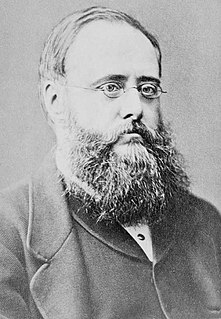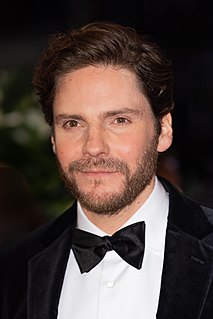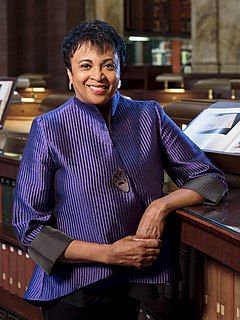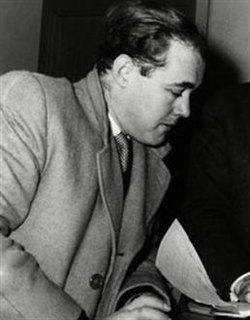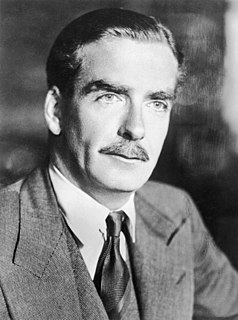A Quote by Wendell Berry
There's a world of difference . . . between that information to which we now presumably have access by way of computers, libraries, and the rest of it, great stockpiles of data, and the knowledge that people have in their bones by which they do good work and live good lives.
Related Quotes
Data isn't information. ... Information, unlike data, is useful. While there's a gulf between data and information, there's a wide ocean between information and knowledge. What turns the gears in our brains isn't information, but ideas, inventions, and inspiration. Knowledge-not information-implies understanding. And beyond knowledge lies what we should be seeking: wisdom.
The greatest thing is the internet and that means that anybody, you have just as much access as I do. And you can make your little tape and work on it and work on it until you got it the way you want it. And then you can put it on the net. And if it's any damn good somebody's gonna notice. That's happened over and over again now. To me that's good. That's good access that isn't controlled by the companies. I think that's a great thing.
While the difference between a bad sermon and a good sermon is mainly the responsibility of the preacher, the difference between good preaching and great preaching lies mainly in the work of the Holy Spirit. . . . We should do the work it takes to make our communication good and leave it up to God how and how often he makes it great for the listener.
There's a great difference between knowing that a thing is so, and knowing how to use that knowledge for the good of mankind. Thetrouble with a scientist is we quickly tire of our discoveries. We hand them over to people who are not ready for them, while we go off again into the darkness of ignorance, searching for other discoveries, which will be mishandled in just the same way when the time comes.
The Hacker Ethic: Access to computers--and anything which might teach you something about the way the world works--should be unlimited and total.
Always yield to the Hands-On Imperative!
All information should be free.
Mistrust authority--promote decentralization.
Hackers should be judged by their hacking, not bogus criteria such as degrees, age, race, or position.
You can create art and beauty on a computer.
Computers can change your life for the better.
There is such a difference between the pursuits of men in great cities that one part of the inhabitants lives to little other purpose than to wonder at the rest. Some have hopes and fears, wishes and aversions, which never enter into the thoughts of others, and inquiry is laboriously exerted to gain that which those who possess it are ready to throw away.
Eventually, we need to have computers that work differently from the way they do today and have for the past 60-plus years. We're capturing and generating increasingly massive amounts of data, but we can't make computers that keep up with it. One of the most promising solutions is to make computers that work more the way brains work.
The free world has need that its foreign policies should fairly measure the realities of the world in which we live. There are certain principles to which we hold: the sanctity of treaties, good faith between nations, the interdependence of peoples from which no country, however powerful, can altogether escape.
And it has been sarcastically said, that there is a wide difference between a good physician and a bad one, but a small difference between a good physician and no physician at all; by which it is meant to insinuate, that the mischievous officiousness of art does commonly more than counterbalance any benefit derivable from it.


